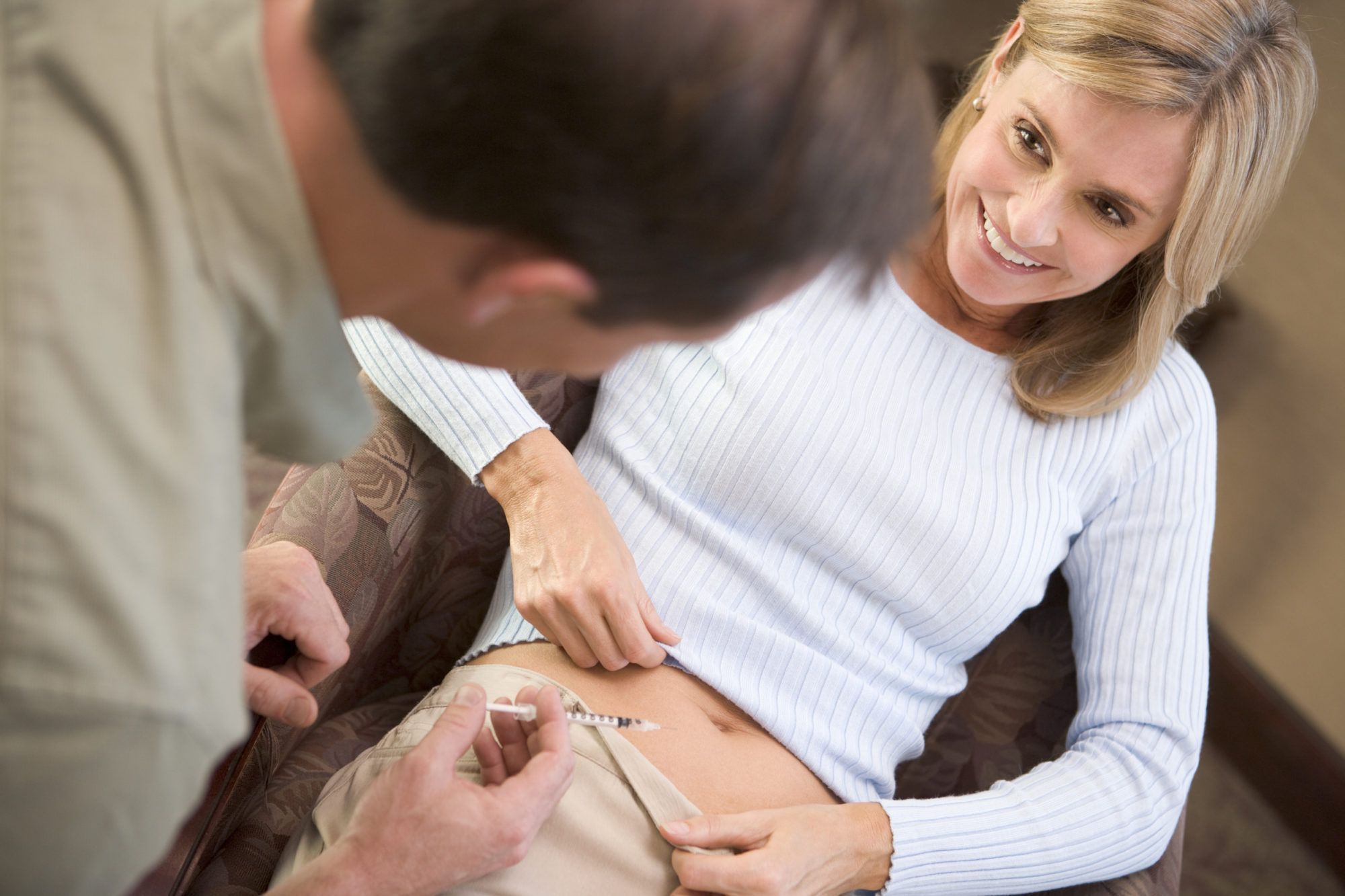Our pilot study involving human chorionic gonadotropin (HCG) to enhance implantation may well be the key to improving “persistently inefficient” IVF
Our doctors have always been a part of leading research on new techniques to improve in vitro fertilization (IVF) results. Recently, our doctors have been part of a clinical study to improve embryo implantation results.
Across the fertility industry, methods of medical management and IVF lab procedures have been optimized and have not really improved for several years. IVF is persistently inefficient. Now is the time to improve the implantation rates per embryo.
The most important aspects of implantation relate to the embryo’s chromosomal makeup and many other factors that cannot be improved by any treatment. However, there is renewed interest in the role of enhancing implantation as an area of possible intervention.
In a natural pregnancy, beginning as early as the 8-cell embryo stage, the hormone human chorionic gonadotropin (HCG) is secreted. In this early stage, the embryo is actually in the fallopian tube. But the embryo probably has an effect on the reproductive tract, including the endometrium, over the next two days until it migrates to the uterus, where HCG can have a local effect. The HCG signals chemically that an embryo is present and alerts the lining to prepare for implantation.
In IVF however, between day 3 (when the HCG would normally begin to be produced) and the transfer (typically on day 5) the HCG hormone is absent because the embryos are in a dish, not in the fallopian tube triggering HCG production. There is evidence in animals that HCG injection into the endometrium improves the response of the endometrium to the embryo, and therefore improves IVF Results.
Still pioneering research
Starting in 2013, we performed a pilot study of the use of the intrauterine injection of HCG on day 3 or 4 before implantation on day 5 to enhance embryo implantation. Our results have been encouraging. The pregnancy rates were between 45-50 percent in the groups studied. All had day 5 transfers.
There have been similar studies with randomized trials using earlier placement and transfer in Egypt, Mexico, Iran and the United States. The five properly controlled studies of this topic have been evaluated in a meta-analysis, which is a statistical analysis of the results. It was concluded after the review of approximately 700 treated and 700 control patients that women undergoing IVF and intracytoplasmic sperm injection (ICSI) may benefit from intrauterine HCG injection before embryo transfer.
The only study that failed to show advantage with the HCG injection was a large study done in New Jersey, which was done on the sixth day after transfer. We believe it is too late for the embryonic signaling to occur properly if the HCG is administered this late. None of the studies showed any risk or negative effect of placing the HCG in the uterus.
Our method is to place the HCG in the uterus one to two days prior to a day 5 transfer. If the transfer is done on day 3, then the HCG is placed at the time of transfer. The concept is that the embryo-endometrium signaling is enhanced by this strategy. We place the embryo transfer catheter to 5 cm in order to avoid physical disturbance of the endometrium by the catheter.
In our regimen, we also employ endometrial injury called “the scratch” prior to the IVF cycle, which according to several studies improves implantation. This is employed between day 21 of the previous cycle to day 3 of the IVF cycle.
Reference
- Mansour, Ragaa, Nevine Tawab, Omnia Kamal, Yahia El-Faissal, Ahmed Serour, Mohamed Aboulghar, and Gamal Serour. “Intrauterine Injection of Human Chorionic Gonadotropin before Embryo Transfer Significantly Improves the Implantation and Pregnancy Rates in In vitro Fertilization/intracytoplasmic Sperm Injection: A Prospective Randomized Study.” Fertility and Sterility 96.6 (2011)
- Wirleitner, Barbara, Maximilian Schuff, Pierre Vanderzwalmen, Astrid Stecher, Jasmin Okhowat, Libor Hradecký, Tomáš Kohoutek, Milena Králícková, Dietmar Spitzer, and Nicolas H. Zech. “Intrauterine Administration of Human Chorionic Gonadotropin Does Not Improve Pregnancy and Life Birth Rates Independently of Blastocyst Quality: A Randomised Prospective Study.” Reprod Biol Endocrinol Reproductive Biology and Endocrinology 13.1 (2015)
- Ye, H., J. Hu, W. He, Y. Zhang, and C. Li. “The Efficacy of Intrauterine Injection of Human Chorionic Gonadotropin before Embryo Transfer in Assisted Reproductive Cycles: Meta-analysis.” Journal of International Medical Research 43.6 (2015): 738-46.






